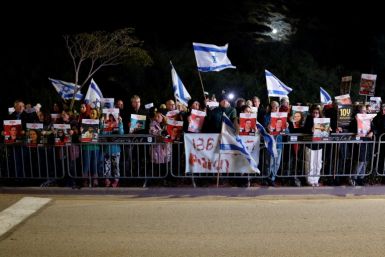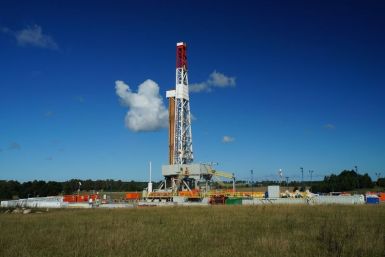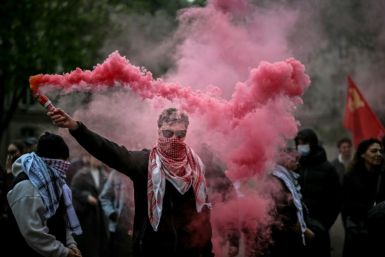'Constant Terror' In Rafah As Gazans Brace For Israeli Invasion
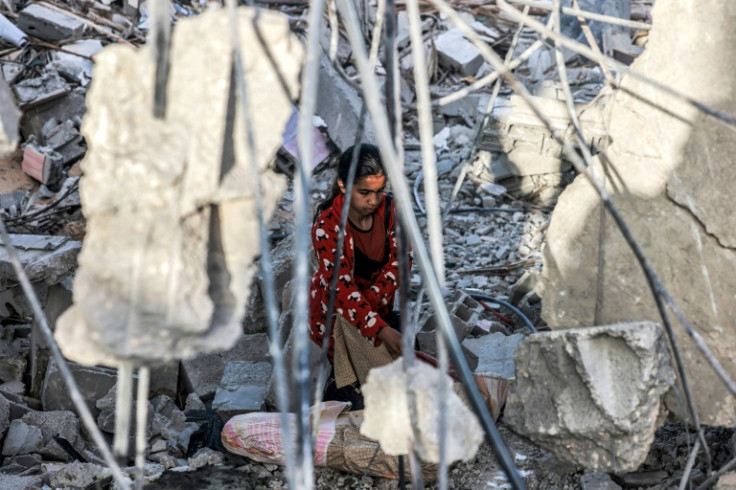
Palestinians in Rafah told AFP Saturday they were living in "constant terror" as Israel vows to push ahead with its planned assault on the south Gaza city flooded with displaced civilians.
Most of Gaza's population is sheltering in Rafah at the very south of the territory after fleeing Israeli bombardment elsewhere.
The Israeli army insists it will carry out a ground assault to eliminate Hamas militants, despite an international outcry and concern for the roughly 1.5 million Palestinians sheltering in Rafah, many in tents.
"We live in constant terror and fear of repeated displacement and invasion," said Nidaa Safi, 30, who fled Israeli strikes in the north and came to Rafah with her husband and children.
"We think about it all day long," she said.
Even before Israeli forces begin the expected assault, they have been carrying out devastating air strikes.
An overnight strike on a house in Rafah killed a four-month-old baby, her mother, father, and two brothers, relatives and neighbours told AFP.
Hospital officials in Rafah said more than a dozen people were killed during the night.
"Every day we hear news about a Rafah invasion and that it's a certain fact, on top of the bombardments we witness and hear," Safi said. "Fear is controlling us, we don't know how to think anymore."
Her family has now decided to leave for Deir al-Balah, in centre of the Gaza Strip. Safi said they hoped to "flee Rafah before they kill us."
Others are unable to bear the thought of being uprooted again.
Samah Deeb, 32, has decided to wait before leaving.
"The thought of displacement again makes me extremely terrified, because I've fled so many times," she said.
Before travelling to Rafah, she had already left home and taken shelter at the Al-Shifa Hospital in Gaza City.
"Just the thought of having to work on another tent and transfer all of our belongings and the new expenses it will cost is unbearable," she said. "There is nowhere else safe, and nowhere else after Rafah to go."
Deeb said she was monitoring the news closely.
"At any moment they tell us to evacuate Rafah, we will leave like the rest of the people but we pray to God they won't invade Rafah and force us to relive the suffering of displacement," she said.
Qasim Abu Nahl, a 40-year-old from Gaza City, said he had already been displaced four times.
"Moving from one place to another has been incredibly hard for us," he said.
"We spent nearly two weeks enduring heavy bombardment, shells, and smoke bombs" at the city's Al-Rantisi Hospital before fleeing to Nuseirat in the centre of Gaza "with nothing but the clothes on our backs," he said.
He said he fled bombing in Nuseirat and went to the southern city Khan Yunis, which "became overcrowded and increasingly dangerous" before he arrived in Rafah.
"We don't know if we'll be safe tomorrow or not," he said. "Every day brings new unsettling news about Rafah."
Resident Noor al-Farah, 56, has been packing clothes, food and firewood with her husband and children in preparation.
"I am mentally exhausted from the worrying news and waiting for the unknown," she said.
She has been unable to find anywhere outside Rafah for her family to stay, and said she was afraid of snakes in displacement camps.
Gazans living in Rafah's camps have also had to contend with unbearable temperatures as a heatwave takes hold.
Intisar Ramadan Ghaban said life inside a hot tent in fear of an Israeli invasion was like a "new death."
The 61-year-old said she had already been displaced from Gaza City and Nuseirat refugee camp before reaching Rafah.
"Invasion of Rafah is what we fear the most," she said. "We fear the day will come when they tell us to get out, but until then we don't know where we'll go.
"Will they give us a warning in advance? Or will we leave urgently without knowing what's going on, carrying only ourselves without anything else? Or will it be under heavy bombardment?
"We have no idea," she said.
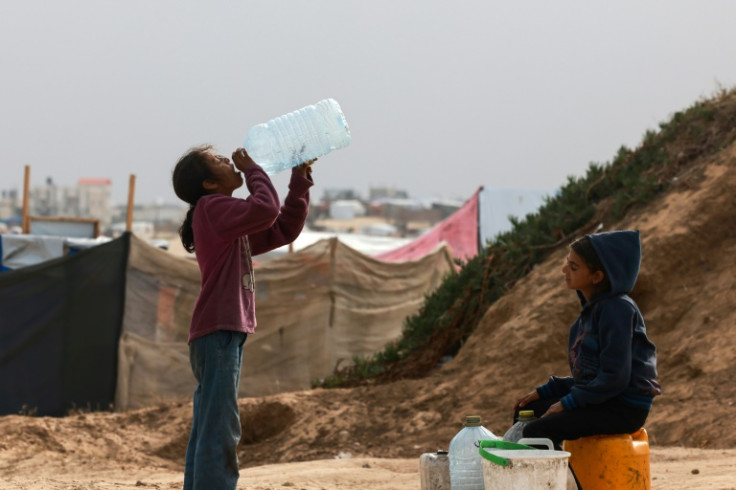
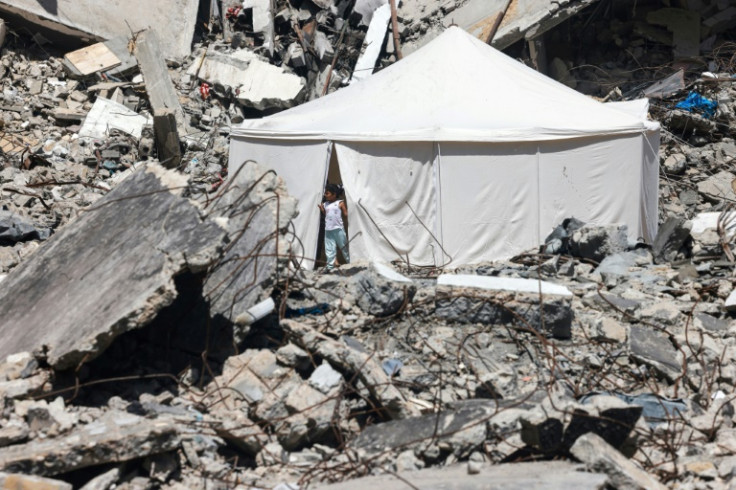
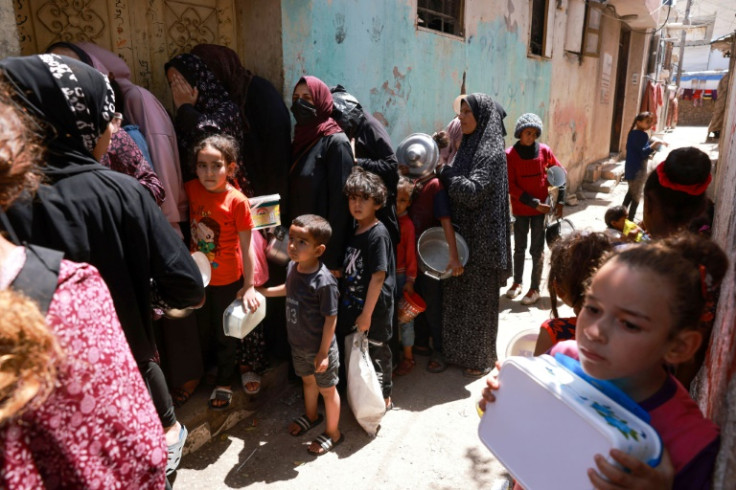
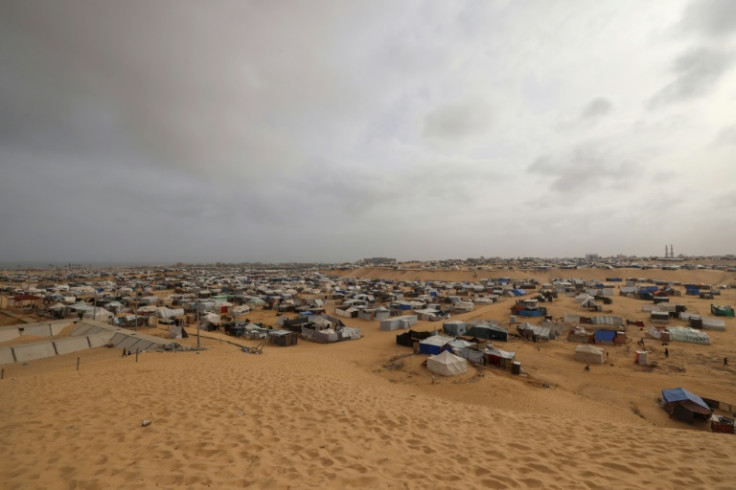
© Copyright AFP 2023. All rights reserved.


